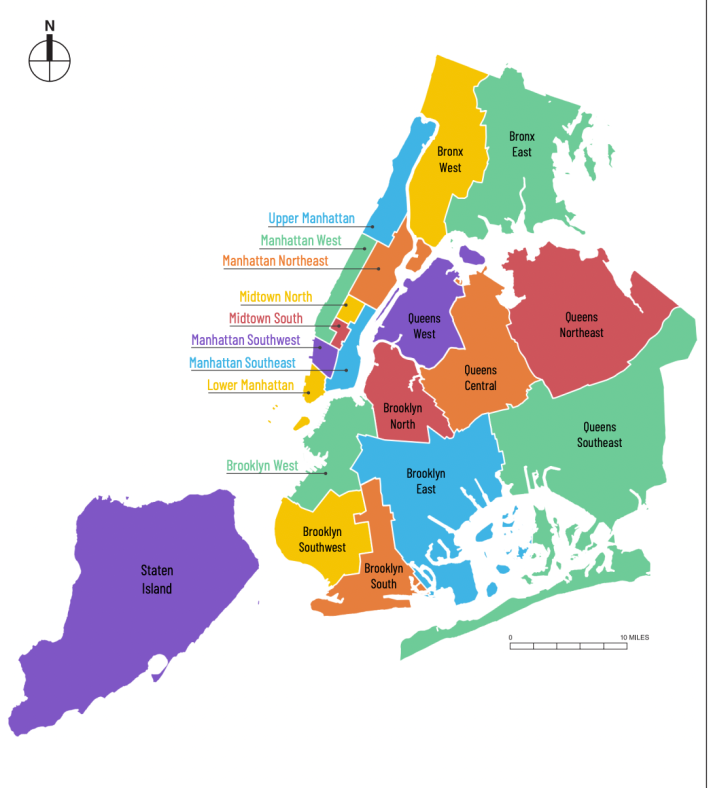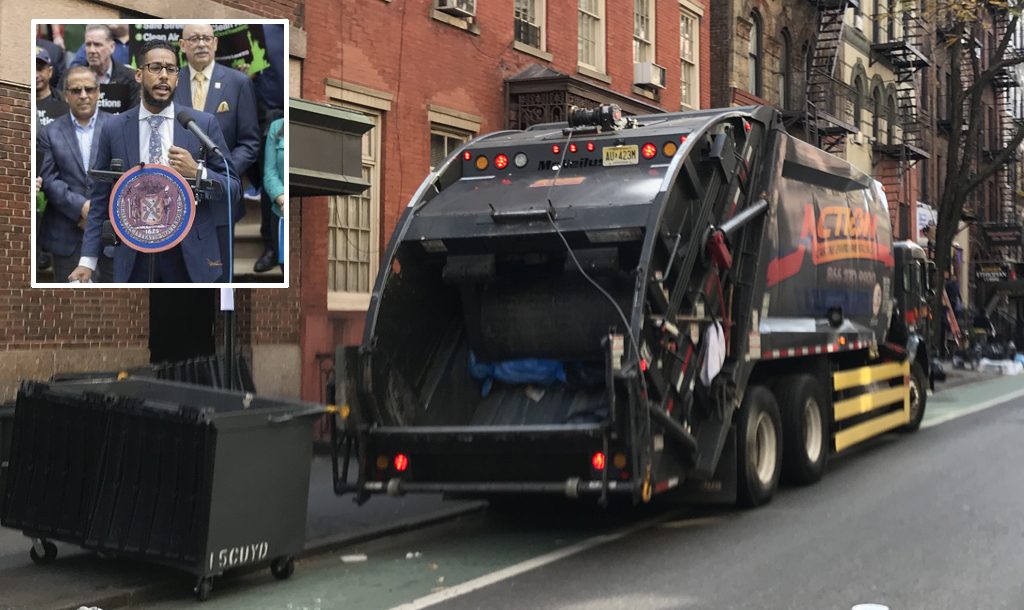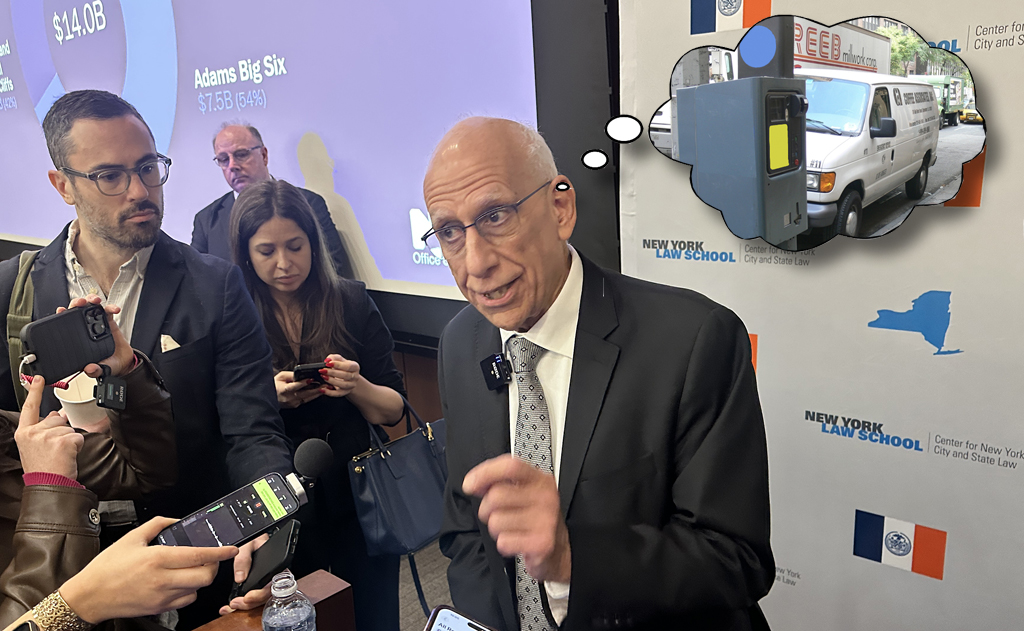They’re finally taking out the trash.
Five years after the city passed a historic law requiring an overhaul of the rogue private carting industry, the new so-called Commercial Waste Zone program is expected to roll out this coming fall, officials announced on Tuesday.
After years of delays, and even a proposed "working group" to make sense of the ongoing holdup, the Department of Sanitation has announced the chosen private haulers for a program that will launch later this year.
Advocates and experts have long pointed out the dangers of the job, where drivers work long, grueling hours behind the wheel of massive trucks, risking not only their lives but the lives of other pedestrians and cyclists on the road. And in 2019, after a spate of deadly, high-profile crashes, the city took action to regulate the industry by setting up 20 zones in which only a small number of private carters would be allowed to operate, replacing a free-for-all system and cut-throat competition that led to reckless driving and fatalities.
"These contracts are designed specifically to bring safety and worker protections to an industry long known for being dangerous and inefficient, and were crafted in compliance with all city legal requirements,” said DSNY spokesperson Joshua Goodman, adding that the law includes major upgrades to trucks such as backup cameras, GPS monitoring, and mandatory safety training.
One of those haulers selected for the job is Action Carting, the private trash company whose driver killed cyclist Neftaly Ramirez in Greenpoint in 2017. The firm was awarded contracts for 14 of the 20 zones, according to DSNY. Several of the other companies awarded contracts include Royal Waste Services, Cogent Waste Solutions, Filco Carting Corp, and Waste Connections of New York.
This year, only one of the 20 zones — in the Queens neighborhoods of Jackson Heights, Corona, and Elmhurst — will begin. The remaining 19 could take a few more years. And Sanitation Commissioner Jessica Tisch admitted last year that the long-delayed program could still hit a few snags.
“I reserve the right to adjust that timeline, but I assure you that I will provide regular updates as the procurement rules permit,” she told Council members during a hearing on the program last year. “I may be coming back to you and saying, ‘Sorry, I have new information. It’s not going to be in the second quarter of 2024.’ Given what I know today … I think we will start our first pilot in the second half of 2024, but also know that things can change between now and then.”

The new routes are expected to slash the number of vehicle miles traveled in half, or the equivalent of 12 million fewer miles driven, the agency said — less than the 78-percent drop originally proposed in Manhattan, but still a dramatic reduction in the number of gas-guzzling big rigs traveling down narrow streets in the middle of the night, contributing to fewer crashes and less pollution.
But with a rocky start to the program, it’s imperative that the city doesn’t take its foot off the gas before all 20 zones are rolled out citywide, said Brooklyn Borough President Antonio Reynoso, who, as a Council Member representing North Brooklyn at the time, introduced the legislation that ultimately created the Commercial Waste Zone program.
“I understand that when a program of this scale is being implemented, there are likely to be hiccups along the way. Keeping this in mind, it is important that DSNY continuously reassess implementation and course correct as needed so we can achieve the best iteration of the program possible,” said Reynoso. “I remain optimistic that this system will bring about sorely needed reforms [such as] the labor, environmental, and quality-of-life objectives laid out in the bill I sponsored.”
One of those delays to be cautious of is the installation of guard rails on trucks that are 10,000 pounds to prevent pedestrians and cyclists from being swept beneath the massive vehicles' rear wheels. Streetsblog reported back in 2019 that only about 15 percent had the life-saving measure installed, according to data at the time from the city’s Business Integrity Commission — the agency currently overseeing the industry until DSNY takes over as each zone gets rolled out.
“We’re thrilled to see it moving forward. But we’re concerned DSNY has announced a timeline for one of 20 zones to be implemented,” said Justin Wood, the director of policy at New York Lawyers for the Public Interest.






